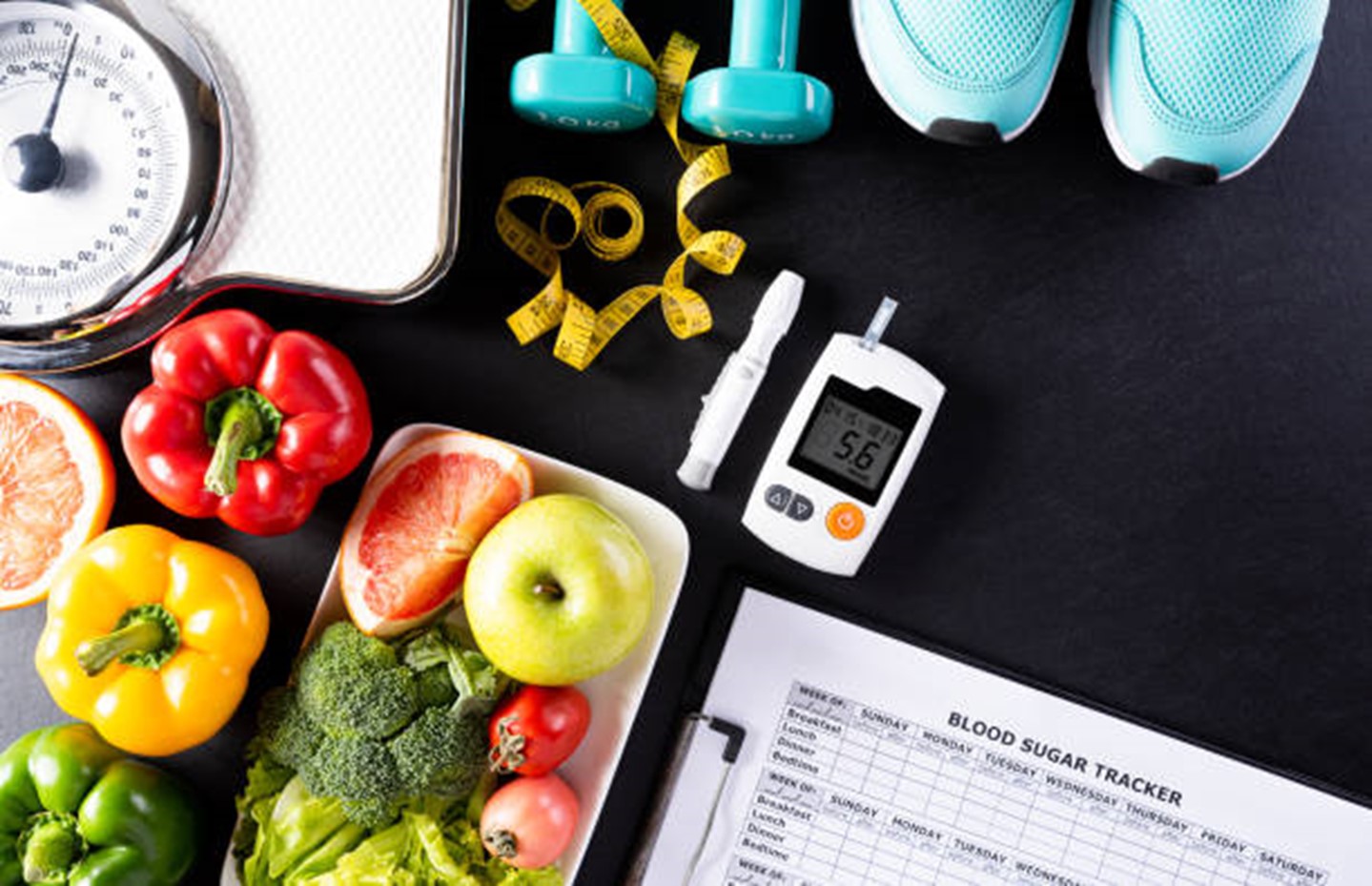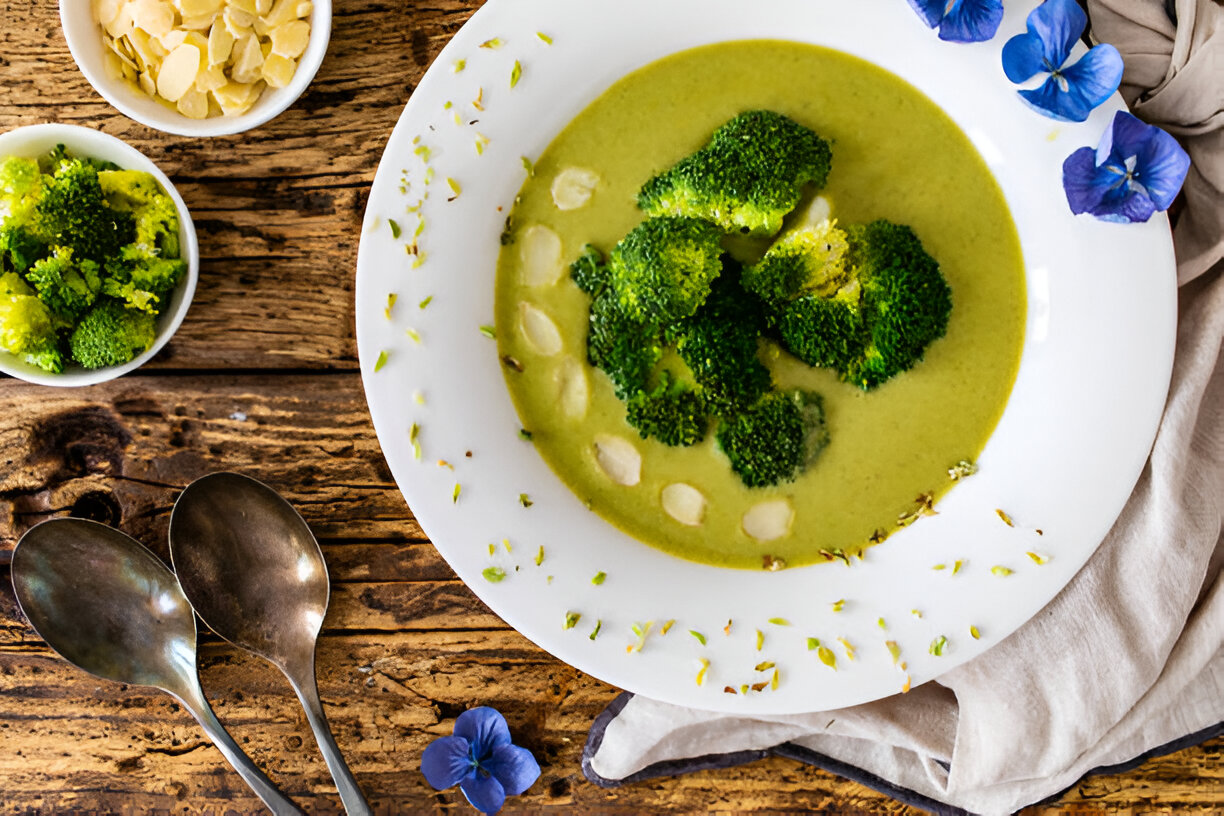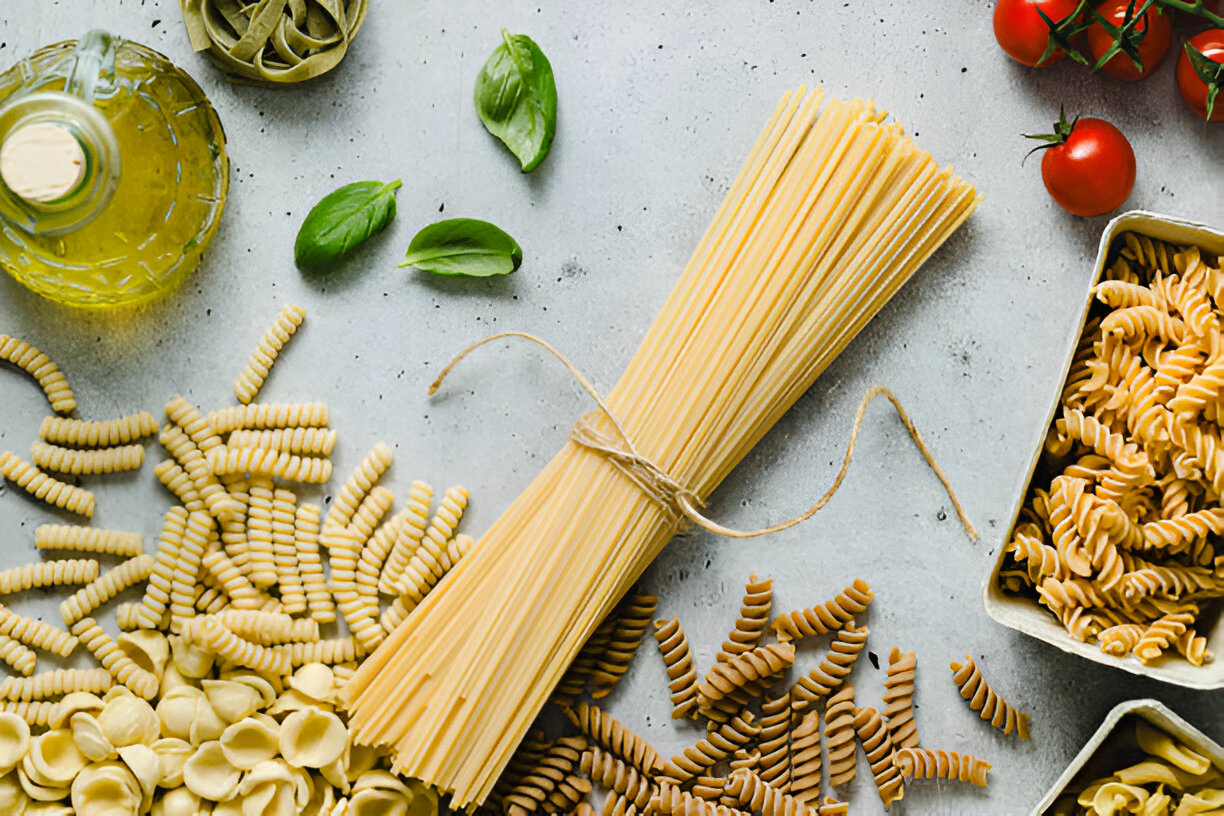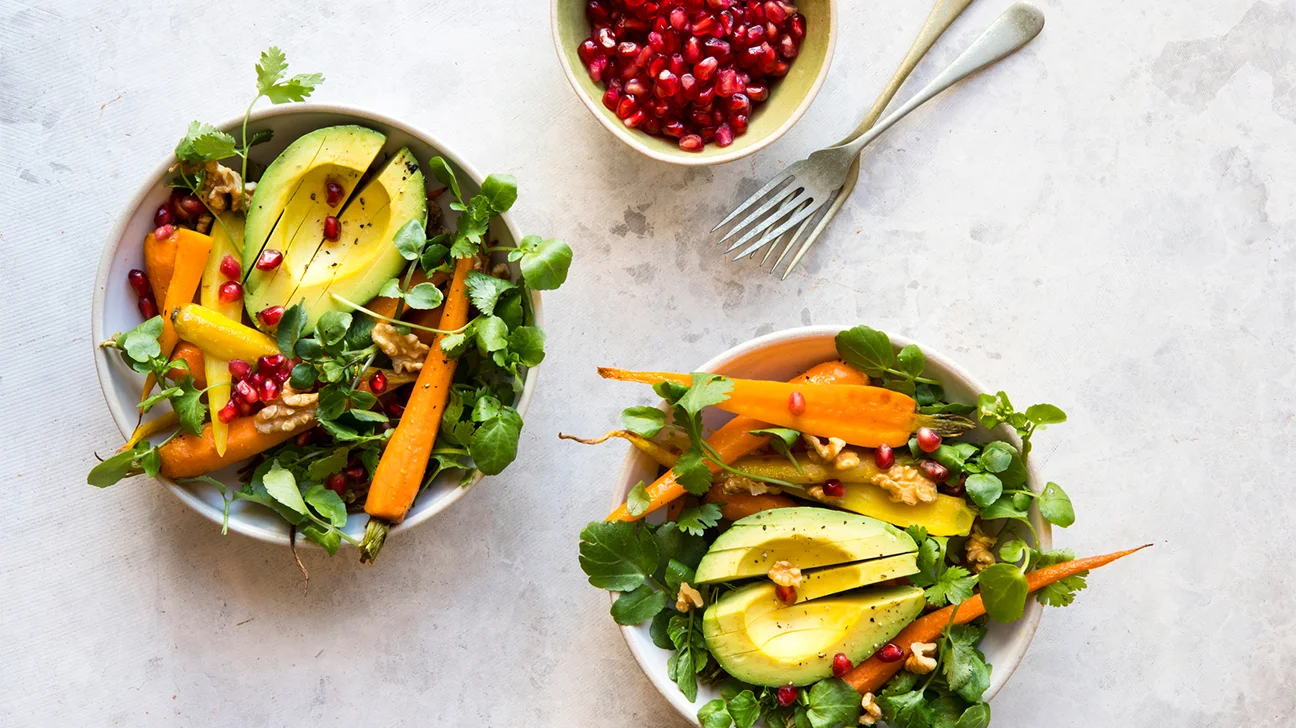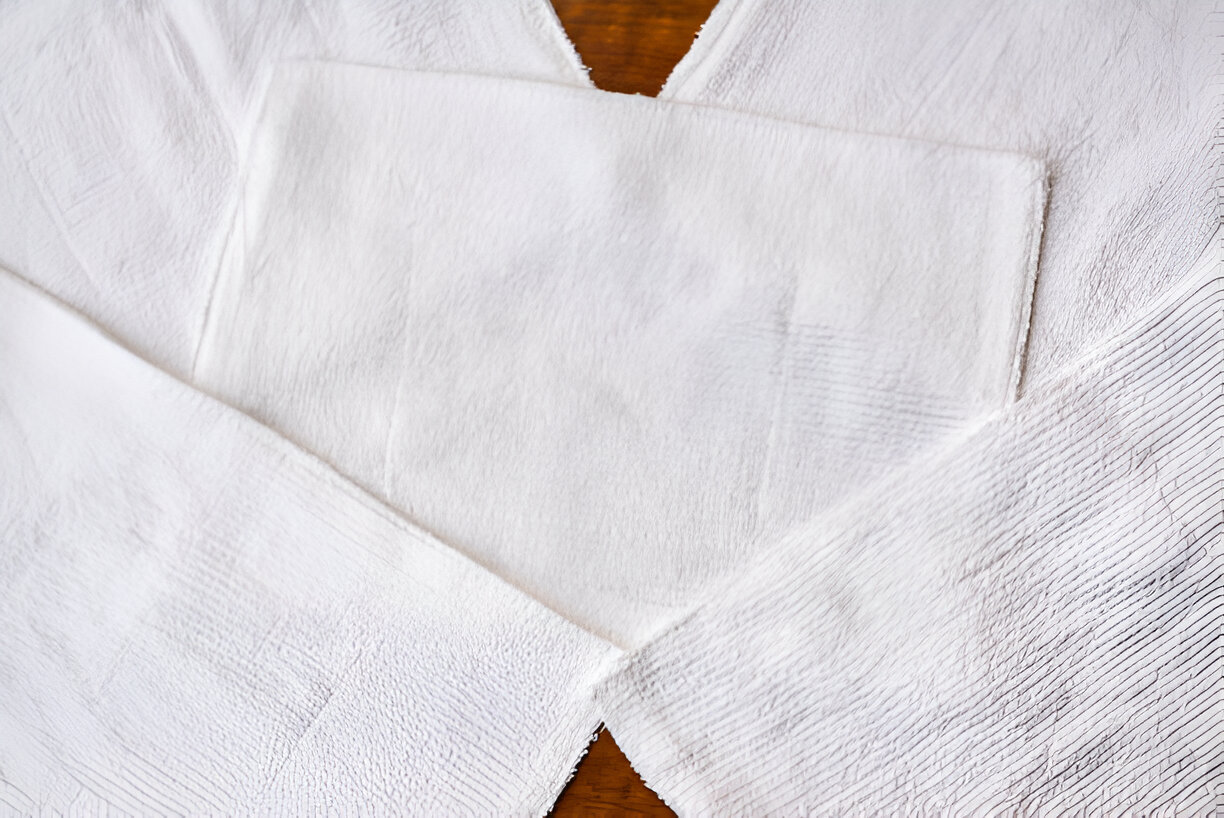
What you need to know about the care and feeding of your body’s least appreciated, most important organ.
It’s noon and you’ve just ordered a buckwheat bean salad. You haven’t taken a bite, and yet digestion has already begun. The process actually started back at the office when the mere thought of lunch set off a release of salivary enzymes, preparing your gut for what’s to come. Now, as you chew, your teeth break up the salad, saliva mixes in, and when you swallow, the food begins a trip down a 30-foot-long tube that extends from the throat through the stomach to the anus. The semidigested bite of buckwheat chugs along, being further broken down by stomach acid, passing into the small intestine where the salad’s nutrients are absorbed. Over the next four to six hours the nondigestible portions of the food move into the large intestine and eventually are excreted, 24 to 72 hours later. Sounds simple, right?
Not always. The National Institutes of Health reports that 70 million Americans (about a quarter of us) suffer from digestive disorders: bloating, gas, nausea, heartburn, diarrhea, or constipation. And feeling uncomfortable isn’t the only consequence: A growing number of experts from both the alternative and mainstream medicine worlds believe that there’s a connection between what happens in your gut and what happens throughout your body. “The GI system is way too complex to have evolved exclusively to make sure things move through the intestines,” says Emeran Mayer, M.D., codirector of the CURE Digestive Diseases Research Center at UCLA. Researchers say that poor gut health may even be connected to conditions like allergies, arthritis, autoimmune diseases, and mood disorders. “A healthy gut is central to your overall health,” says Mark Hyman, M.D, a doctor of functional and integrative medicine in Lenox, Massachusetts, and author of ”
The UltraSimple Diet
.” Fortunately, the latest research is helping to unravel the whole-body workings of the digestive system and uncovering simple things you can do to help keep things running smoothly.
A Delicate Balance
Gut health begins at birth, when the digestive system immediately fills with trillions of bacteria — enough to outnumber the cells in your own body by 10 to 1. You can thank your mother for these, as the majority of them were passed along as you came out of the birth canal. In fact, recent research from the European Molecular Biology Laboratory in Germany is now revealing that just as there are distinct blood types, there may be three distinct groups of bacteria type that all people can be divided among, which perhaps has an effect on overall health. Unfortunately, for many people the struggle to maintain their healthy flora starts just as early. “The typical American diet, which tends to be low in fiber and high in sugar and processed foods, is one key reason our digestive system gets knocked off balance,” Hyman says. Even if you eat clean, overuse of medications, like anti-inflammatories, antibiotics, and acid-blocking drugs damage the gut and block normal digestive function, he adds.
Although they’ve yet to prove it, some scientists believe that the tendency to equate “cleaner” with “healthier” in developed countries, like the United States, has decreased our exposure to microbes, resulting in autoimmune disorders, inflammatory bowel disease, and various allergies. Dubbed the “hygiene hypothesis,” this belief holds that people who grow up in “dirtier” conditions (closer to soil and animals) are less likely to develop allergies than those who are raised in more protected environments. The idea is that exposure to lots of germs strengthens a developing immune system and populates your gut with beneficial bacteria.
A team of scientists, looking to confirm the hygiene hypothesis, compared the gut microbes of children in an African village with those of kids living in Italy. The African children ate a diet high in fiber, cereals, nonanimal protein, and plants, while the Italians ate a typically Western diet high in animal protein, sugar, and fat, and low in fiber. The study showed that the children living in the African village had high numbers of bacteria that make shortchain fatty acids, which give people energy and protect them from inflammatory gut diseases such as Crohn’s and inflammatory bowel disease. They also had fewer diarrhea-causing bacteria compared with the children from Italy.
This reasoning also posits that overuse of antibiotics can be harmful to health because as they destroy the bad bacteria in the body, they also eliminate the good bacteria in the digestive tract, says Tieraona Low Dog, M.D., director of fellowship at the University of Arizona’s Center for Integrative Medicine. “Some research suggests that it’s actually many months before bacteria fully repopulate, which is why women often get a yeast infection after they’ve been on a dose of antibiotics,” she says. “They’ve eliminated the flora.” Without enough good microorganisms, bad bacteria that are resistant to the antibiotic you’re taking can grow out of control, which according to Hyman, produces toxins that can inflame and even damage the colon.
The Stress Connection
There’s a reason why you get butterflies when you’re nervous or feel sick to your stomach when you’re stressed. There’s a nervous system in your bowels that can work independently of the brain and has for that reason been dubbed the “second brain.” Advances in brain imaging techniques in the past 10 years have shown a strong connection between the brain and the gut. The two systems are linked in intricate ways, says Michael Gershon, M.D., a professor of pathology and cell biology at the College of Physicians and Surgeons at Columbia University in New York City, and author of
The Second Brain
. In fact, preliminary research published in the proceedings of the National Academy of Sciences showed that scientists were able to reduce anxiety and stress hormones in mice by feeding them a particular probiotic strain. “We’re still trying to understand how all this cross talk fits together in terms of disease,” he says.
Take irritable bowel syndrome, for instance. “Very often, people with IBS also suffer from depression and anxiety,” Gershon says. “For many years, that was interpreted as ‘top down’ — you’re depressed and that’s causing trouble in your GI tract. But there’s never been strong evidence for that. Given all the neurotransmitters in your gut, it’s equally likely that it’s happening from the bottom up. In other words, for all we know, the gut is as likely to cause depression as the brain is to cause IBS.”
Similarly, one of the reasons antidepressants that maintain serotonin levels often provoke GI issues is because 95 percent of serotonin in the body is in the gut, Gershon says. Flooding that system with more of the neurotransmitter can disturb the GI tract’s balance and trigger nausea, diarrhea, and constipation. Being under stress also upsets the balance of the digestive system, Hyman says, killing off the good flora and making the bad type grow.

What’s Eating You?
Your stomach is a great communicator. If it’s gurgling or gaseous, it may be signaling a problem linked to bacteria, stress, or even your favorite food.
Nicole Hoppe, 30, admits that bagels, overstuffed sandwiches, and platefuls of pasta used to make up the majority of her meals. But as a dance/theater teacher, she felt good and was at a healthy weight, so she never thought about what she put in her body — until her stomach turned on her. “I would get so bloated after a meal, I looked pregnant,” she says. She started eating more natural whole foods, and fruits and vegetables, but the problem escalated: Over time, her stomach issues intensified, her face broke out, she gained 15 pounds, her hair and nails grew weaker, and she was constantly tired.
Countless doctor visits led to numerous tests and diagnoses. One by one, gluten sensitivity, thyroid problems, and a stress-related condition were dismissed. Finally, four years after her symptoms began, Nicole’s mother suggested she see an M.D. who specializes in complementary medicine. After quizzing Nicole on her lifestyle and running a number of tests, the doctor was able to connect the dots between Nicole’s diet, birth control pills, antibiotics she had taken, and her gut problems. Turns out, Nicole had an imbalance of good and bad bacteria in her gastrointestinal system that lead to an overgrowth of yeast, a condition sometimes called dysbiosis.
The symptoms Nicole experienced are so common we’ve come to accept them as the norm, but experts say too much “bad” bacteria and a depletion of the “good” is a major culprit in digestive disorders, contributing to irritable bowel syndrome, celiac disease, and inflammatory bowel disease, among other problems. When left unchecked, it may even lead to conditions like depression. Whether it’s occasional constipation or something more chronic, tracing tummy troubles to their root can help you identify the problem.
When Healthy Foods Are to Blame
Bacterial imbalance is a major cause of gastrointestinal distress, but it’s not the only one. “People often think they’re eating healthfully — whole grains, tofu, low-fat dairy — but their diet is actually causing problems because they’re sensitive to something in it,” says Frank Lipman, M.D., author of
Total Renewal
. “The foods that are best for me may be harmful for you.” Bloating, gas, cramping, nausea, and diarrhea can all result from reactions to the following.
Dairy
Milk products contain a sugar called lactose. Normally, the small intestine produces an enzyme, lactase, to break it down, but some people make less of it as they age. However, according to a review of studies on lactose intolerance from the National Institutes of Health Consensus Development Conference last year, many people with the condition are able to tolerate 12 grams of lactose at a time (the amount in one cup of low-fat milk) without having symptoms.
Soy
Tofu, edamame, and soy milk are obviously sources of this legume, but it’s also found in many cereals, baked goods, energy bars, canned broths, and soups. Read ingredient labels carefully.
Fructose
As with lactose, some people cannot digest the sugar fructose, a condition called fructose malabsorption. Eat less fruit, and avoid fruit juice, honey, table sugar, and products with high-fructose corn syrup.
Gluten
About one in 133 people suffer from celiac disease, an autoimmune condition, not a food intolerance, where the body attacks the intestinal villi (hairlike projections that absorb nutrients from food) when any amount of gluten is eaten. According to new research in the journal BMC Medicine, many more people may be gluten sensitive. They don’t have the same autoimmune response to gluten (and may be able to tolerate small amounts), but it does cause digestive problems. Wheat, barley, and rye all contain gluten.
“If you think you have food sensitivities, try an elimination diet,” advises Mark Hyman, M.D. Cut out the foods above for a week or two and see how your gut feels and what happens to your other symptoms. Then slowly add them back in to pinpoint the offender.
Gut Check
It’s a lot easier to maintain balance than it is to restore it. Here are seven ways to stay on track.
1. Eat Fresh
Having a cookie or two isn’t a problem, Lipman says; it’s a daily junk-food habit that does the damage. The majority of your diet should be natural and unrefined as processed foods get broken down into sugar more easily.
2. Keep Things Moving
“You should have at least one bowel movement a day, it should be banana-shaped and it should float,” Hyman says. That’s a sign your digestive system is working properly. If you can’t get going, Hyman suggests one of these daily all-natural cures. Consume two tablespoons of ground flaxseeds (sprinkle them over a salad or stir them into a cup of applesauce). If you don’t see a positive change, try taking one teaspoon of buffered ascorbic acid (vitamin C) powder in a glass of water. Still no relief? Two to four capsules of magnesium citrate twice a day may help.
3. Feed the Flora
“Fiber-filled foods are like fertilizer for the bacteria in your gut,” Hyman says. Look for insoluble fiber (in wheat bran, beans, and green leafy vegetables like spinach, kale, and chard), which helps move waste out of the colon, Hyman says. Aim for at least 25 grams of total fiber a day.
4. Don’t Rely on Colonics and Enemas
Advocates for these treatments say that the digestive tracts of people who eat typical Western diets move waste along more slowly than those of people who get enough fiber. This longer “transit time” may mean that unhealthy substances in food have more time to cause trouble. But the best way to speed transit time is to eat plenty of fiber, says Low Dog, who warns that colonics can perforate the colon and introduce harmful bacteria. If you’re looking to detox your digestive system, try these all-natural tips from Hyman:
- Drink plenty of water, (preferably filtered) daily.
- Fill your plate with cruciferous veggies — broccoli, brussels sprouts, collards, cabbage, and kale — as well as garlic and onions. They increase sulfur levels, which in turn help the body battle environmental toxins.
5. Reboot Your Body
Standard gut wellness advice usually includes adding a probiotic supplement to your regimen to keep levels of microbes high, limiting the growth of yeast and unhealthy bacteria. Easy enough, except for one thing. Given all the so-called probiotics on the market, how do you know which ones work? “There is a list of criteria that a bacterial strain or supplement must meet to be considered a probiotic, and many commercially available ones are lacking,” says Gail Cresci, Ph.D., R.D., a researcher and nutrition specialist on links between gut flora and colonic health at Ohio’s Cleveland Clinic. Look for products that contain at least 10 billion CFU. Bifidobacterium and lactobacillus species are two of the best-researched strains. Also try fermented foods such as kimchi, miso, sauerkraut, and yogurt, which are packed with natural microbes.
6. Slow Down
We all know you are what you eat, but you are also how you eat. “I’ll never understand people who munch while they’re driving,” Low Dog says. “Unless you’re calm and in an unhurried state, the GI tract can’t optimally absorb nutrients and digest food.” Enter gas, bloating, and indigestion, including heartburn. Her Rx: No multitasking during mealtime, no TV, no texting. “Make it a time of relaxation and conversation,” she says. “Aim for at least an hourlong meal. If you’re feeling a lot of stress, try drinking a cup of chamomile tea before you eat to help enhance digestion.”
7. Drink Up
“If you’re well hydrated, there is a greater chance your stools will be softer, which makes them easier to pass,” says Edward Loftus, M.D., a professor of medicine in the division of gastroenterology and hepatology at the Mayo Clinic in Rochester, Minnesota. How many ounces you should drink a day depends on your diet and lifestyle. An easy way to know if you’re getting enough: Your urine should be very light yellow.
How to Know When You Need a Doctor
The occasional digestive system flare-up — bloating, heartburn, or diarrhea — is pretty common this time of year, when our eating and exercise habits go haywire because of the holidays. But more than one of these episodes could signal something beyond overindulgence. “If the problem persists after making lifestyle changes, if you have blood in your stool, or a fever, you should see a doctor,” Hyman says. Begin with your primary-care physician who can help determine if you need to consult a gastroenterologist.
Natural Rx
This Is How It Starts:
Something you ate made your stomach sour, so you buy over-the- counter heartburn meds known as protonpump inhibitors (PPIs). They work so well, you take them the next time you get heartburn … and the next. Then you discover that popping a PPI in advance of a big night out works even better so you begin popping one as a preventive measure. Before you know it, you’ve made PPIs a regular part of your daily regimen, never realizing the very thing you’re doing to make your stomach “better” is actually putting you at risk for digestive troubles, some of them serious.
Try Weaning Yourself Off the Drugs Naturally with This Three-Step Plan
Document
Keep a food journal for a week to identify your triggers. Write down what you eat so you can see what triggers symptoms.
Eliminate
Avoid offending foods (like caffeine, alcohol, and spicy foods), and avoid eating too close to bedtime.
Reduce
Decrease your dose of PPIs and antacids gradually.
“Most of the time, it takes four weeks,” Low Dog says. “If you notice that your heartburn does not go away completely, try taking 1,000 mg of d-limonene (an orange peel extract) every other day for 20 days for a total of 10 doses. Then you can use 400 to 800 mg of chewable DGL (a licorice-derived supplement) before meals and bed, as needed.”









